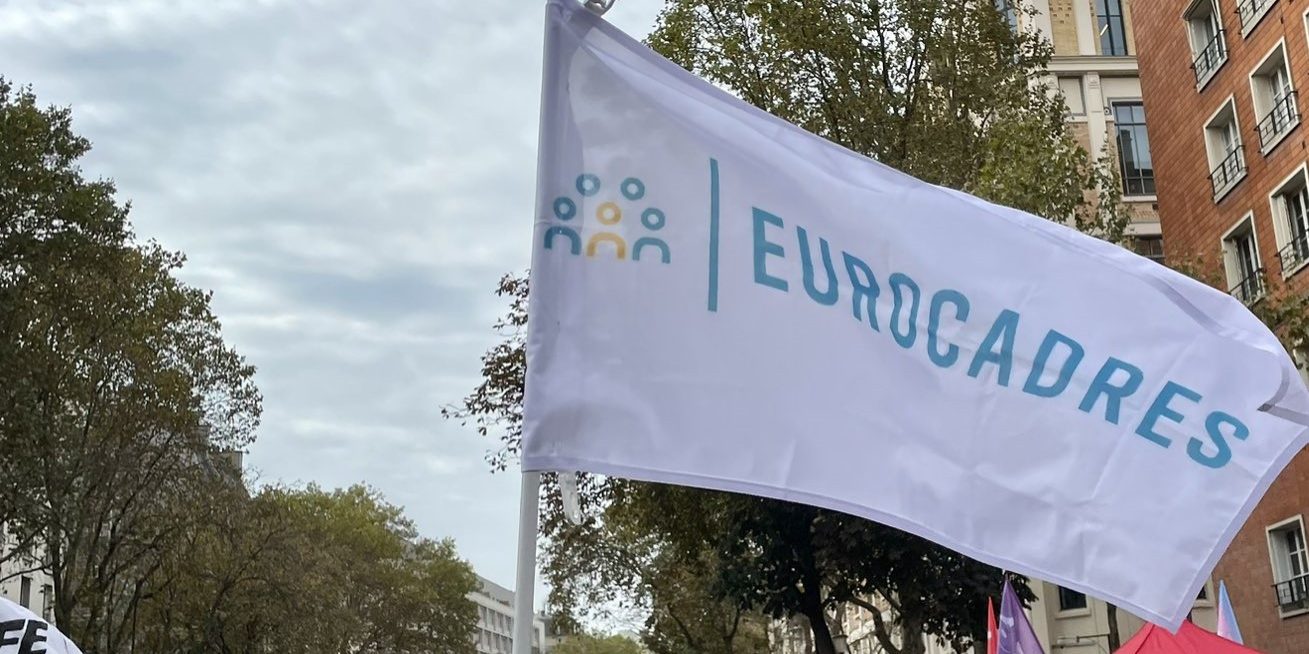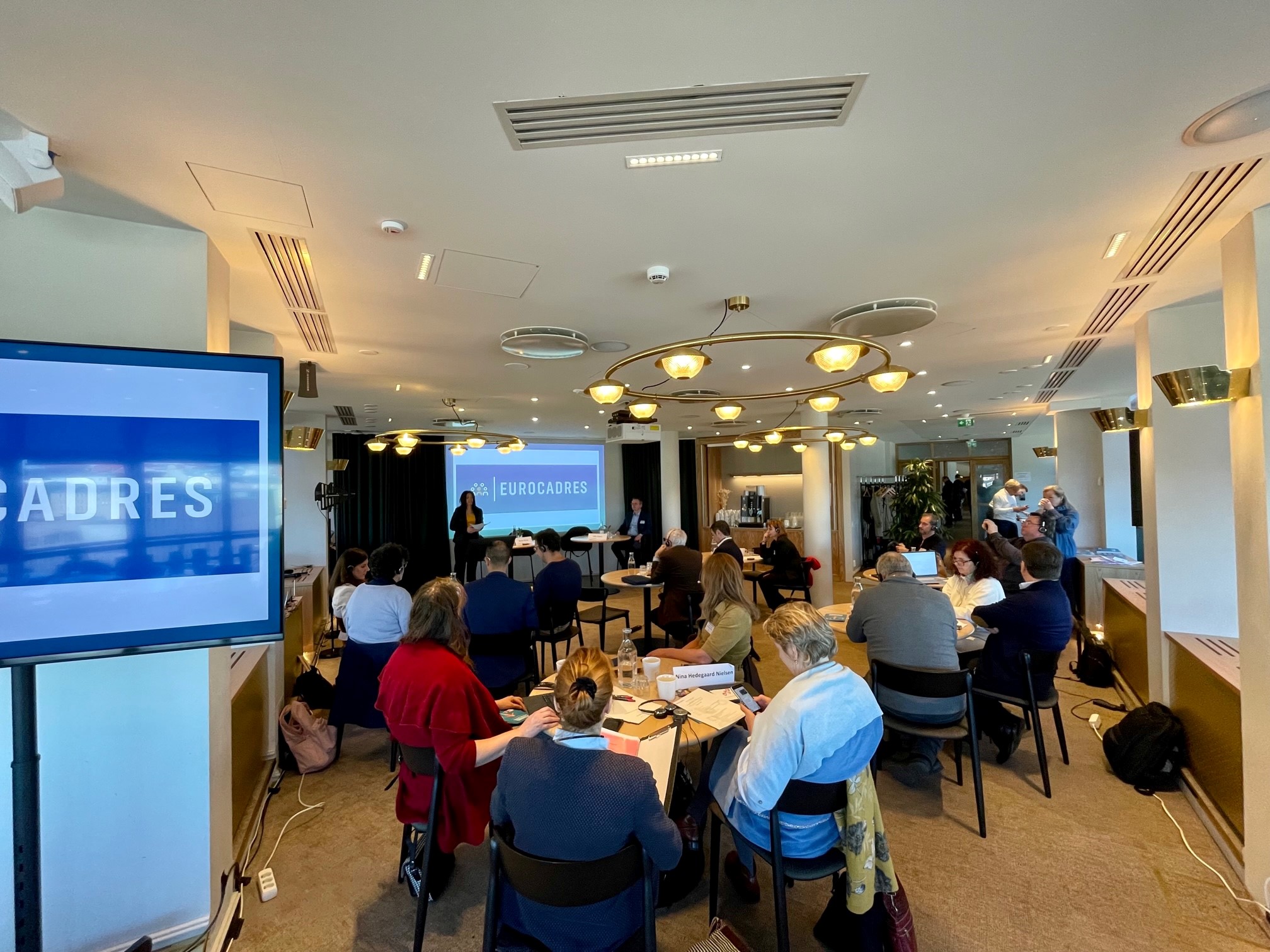
Flex@Work project concludes in Helsinki
Packed agenda closes out project.

After two years of research, debate and discussion on how professionals and managers can best navigate the challenges and opportunities posed by increasing flexibility in their working time, location and practices, we concluded our Commission funded project in Helsinki.
Hosted by Akava, and following successful meetings with national parliamentarians and interest groups, our two days of activities began with a presentation of our practical guide, “Working Anytime, Anywhere” by expert Nina Hedegaard Nielsen. Covering ground from national collective agreements to European legislation, this publication encompasses all the potential gains and losses from evolving work organisations, including initiatives to move to four-day work-weeks and risk assessments. The guide can be found here.
Following on from our previous events in Barcelona, Copenhagen and Porto, our final conference brought together trade unionists and labour inspectors from right around Europe. On the agenda were some of the latest developments in key policy areas, examining the Platform Work Directive, the AI Act and potential European regulation on Telework and the Right-to-Disconnect. Not only focused on legislation, we also took a wider look at the European elections, with our conference entitled: Post-election Europe - A change for workplaces, or the status quo? and featuring presentations on how the elections will impact the ability to deliver progressive policies in the Parliament itself, it’s employment committee, the Council and the Commission.
We also heard about the challenges facing workers in digital labour platforms from the University of Oxford’s Jonas Valente, the scale of the challenge we face in Telework and the Right-to-Disconnect from Eurofound’s Barbara Gerstenberger, how we regulate telework from Johan Holm, Researcher at the University of Umeå and a breakdown of the new rules on AI from the OECD’s Andrew Green. Adding to this the presentation of national initiatives on the four-day working-week from Eurocadres Vice-President Paula Ruiz Torres, we guaranteed all interest areas were covering over the two days! We would like to thank all our contributors, including the speakers in our three panel debates, Hannele Fremer (Akava), Tea Jarc (ETUC), Elli Nieminen (Finnish Ministry of Labour), Matteo Ariano (FP CGIL), MEP Alex Saliba, Tuomo Ala-Soini (Finnish Institute of Occupational Health), Guillaume Afellat (SGI Europe), Ana Carla Pereira (European Commission), Nadja Salson (EPSU), Matthieu Trubert (UGICT-CGT), MEP Miapetra Kumpula-Natri, Paula Gürtler (CEPS) and Santeri Räisänen (Helsinki University).
While the project itself has formally concluded, Eurocadres will continue to be active in the area of flexibility at work, with advocacy activities set to continue, along with research, collation of best practices and collaboration between our network of labour inspectors, who contributed greatly to the success of the project.
We would like to thank our expert Nina for her excellent contribution to this project, not just in the drafting of this guide, but in the conceptualisation of the content, planning and delivery of events throughout the last two years, and look forward to working with her within this area going forward.
For further information relating to this and other projects, get in touch with our secretariat here.
